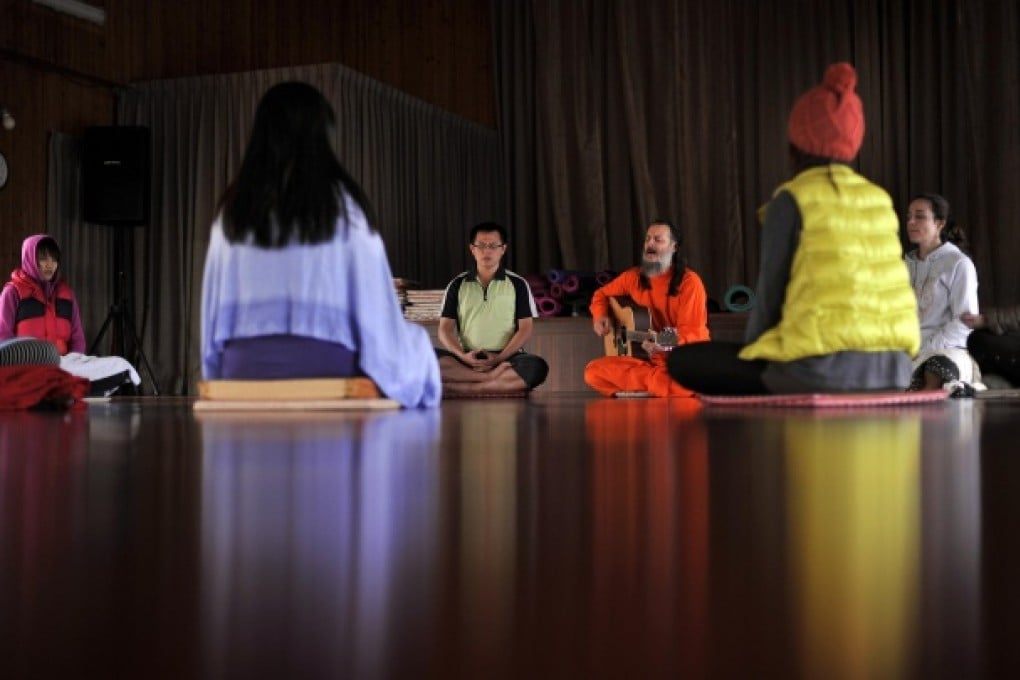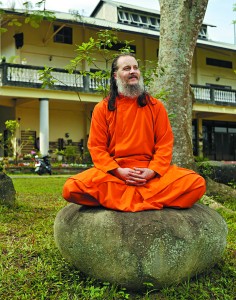For the love of Baba
Ananda Marga was established with revolutionary aims by a former railway clerk and has been implicated in a bombing and a huge arms drop. Naomi Rovnick travels to Taiwan, to see whether the global yogic organisation has managed to transcend its tainted past

It is 6.30 on a dewy autumn morning at an isolated Ananda Marga Pracaraka Samgha retreat in the rolling hills of rural southern Taiwan. Wooden meditation platforms overlook lotus ponds in a landscaped garden, where a wiry, ponytailed Caucasian monk is circling a tree, strumming a guitar and singing a mantra. His long, orange robes flutter in the breeze, his eyes shine with bliss. Repeating the mantra with their arms raised to the sky are 15 or so young people from Taiwan, Hong Kong and Singapore, each of whom has paid the equivalent a couple of thousand HK dollars for what the Indian spiritual group advertises as a five-day yoga and fasting course.
This is day two, and already they are participating in an activity you would not expect to encounter on a typical detox getaway.
Ananda Marga ("path of bliss") has many supporters and many detractors. Founded in 1955 by Prabhat Ranjan Sarkar - whose followers regard the former railway clerk, who died in 1990, as a guru and call him "Baba", meaning father - the group conducts disaster relief work and runs children's homes around the world, including in Thailand and Mongolia, and a primary school in Australia. It also promotes a utopian political philosophy that its devotees believe will succeed capitalism and communism. And it exerts strict control over the orange-robed monks and nuns who are its full-time devotees.
"The group has many features of a cult," says Marsha Low, a 63-year-old former Ananda Marga nun who now lives near Philadelphia, in the United States, and teaches English as a second language.
Ananda Marga emphatically objects to being called a cult or sect, but it has been labelled an "inactive terrorist organisation" by the US Department of Homeland Security's research centre, Start, based at the University of Maryland. This classification relates to events the group was linked to in the 1970s, although Ananda Marga is not viewed as being "actively" terroristic by any government.

The group has several levels of membership. Some of its followers live in their own homes and do little more than attend meditation classes and help with humanitarian projects. Low's allusion to cultish activity concerns more involved members: Ananda Marga's monks, nuns and civilian devotees known as "local full-time workers".